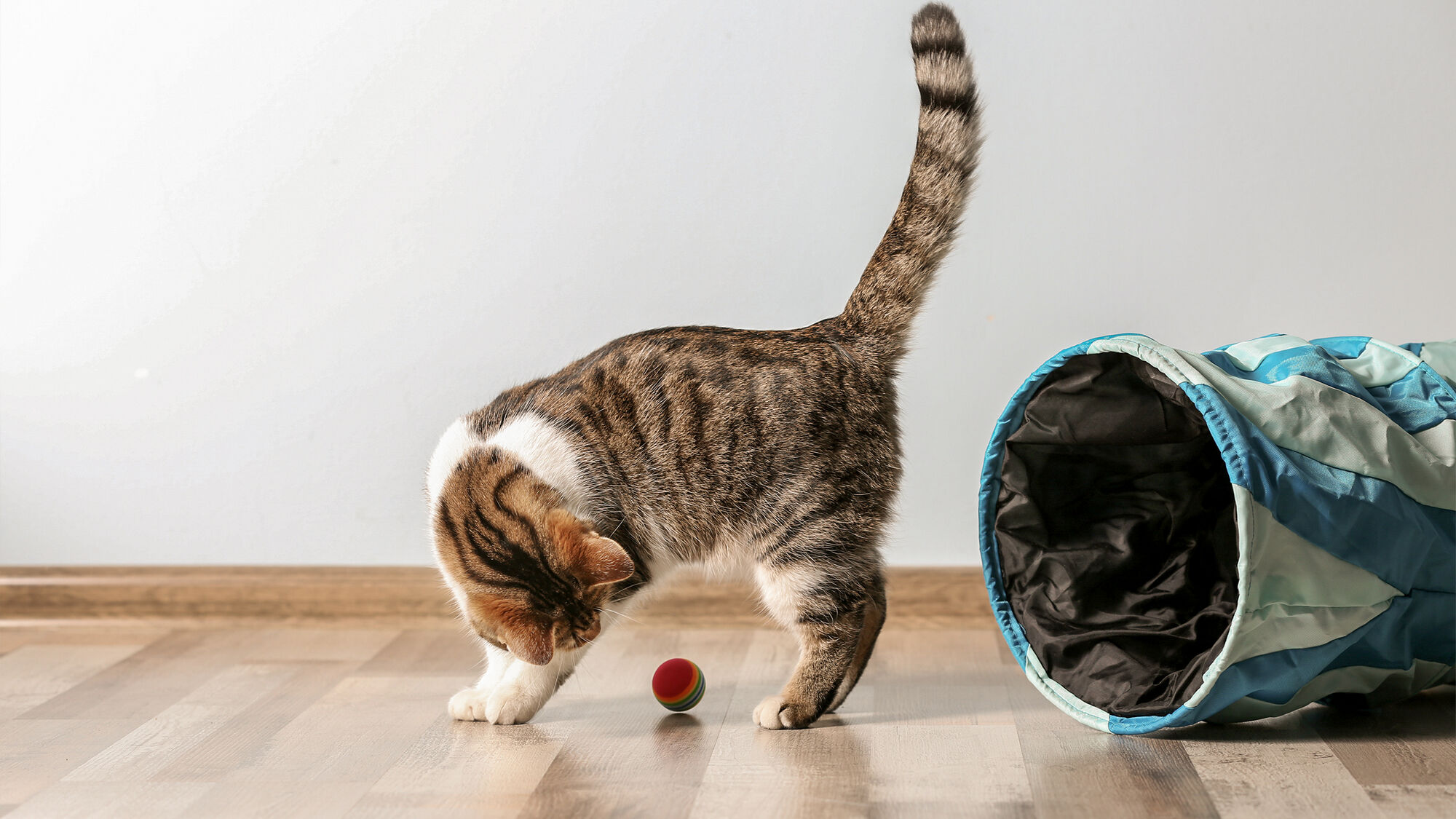Switching your kitten to an adult diet
Article

Why a kitten diet?
Feeding your kitten a nutritionally complete diet, tailored to their specific needs is vital for supporting optimal growth, and laying the foundation for a healthy future.
The first year of your kitten’s life is when they do most of their growing, with most kittens reaching adulthood between 10-12 months of age. Larger cat breeds, such as the Maine Coon, may reach adulthood later at 15 months of age. As kittens grow rapidly, and their digestive and immune systems develop more slowly, they have very specific nutritional needs that are different from adult cats.
As they grow, it is critical to feed a diet that is specifically tailored for kittens to help support healthy growth and development. In particular, kittens need a diet with a higher energy and protein content, plus immune-boosting nutrients and the right balance of vitamins and minerals. Kitten diets provide more energy to help sustain their daily activities such as play, but also to support the growth of bones and muscles, and the development of body systems. Kittens also require a diet that is easy to digest, with prebiotics to support gut health, to allow their immature gastrointestinal tract to absorb maximum nutrition.
Kitten Growth
There are two key stages of growth for your kitten:
1) Birth to 4 months
During this intense growth period, kittens need a diet rich in antioxidants to help support their immune system. Kittens begin to wean at four to eight weeks and, initially, their food should have a very soft texture to help them transition from milk. ROYAL CANIN® Mother & Babycat diets support this early stage of growth, with a dry diet that is easily rehydratable to support this critical phase.
2) 4 to 12 months
During this time, your kitten’s energy needs reduce gradually reduce as they approach their adult size. Your kitten’s digestive and immune systems are also strengthening as they continue to develop, but still require nutritional support to ensure your kitten avoids gastrointestinal upsets. ROYAL CANIN® Kitten diets are specifically formulated to support this second phase of growth.
Neutering
Neutering (or desexing) your cat is known to have many benefits to both your cat’s health and behaviour. But did you know, neutering can make your cat more susceptible to weight gain? The hormonal changes associated with neutering can impacting your cat’s metabolism, which in turn can impact how much food they need to eat. Once your cat is desexed, their daily calorie intake reduces by 30% - that’s one third of their daily portion!
Even though your cats daily energy needs change once they are neutered, it is important that we don’t simply reduce their daily food intake by 30%. If we do this, your cat may miss out on key nutrients that they need for health - plus it could leave them very dissatisfied!
As neutered kittens and cats have very specific nutritional needs, there are diets available that are specifically tailored for this life stage, such as the ROYAL CANIN® Neutered range. These diets have adjusted calories and include specific nutrients such as L-carnitine to support your cat in maintaining a healthy bodyweight post neutering.
Related Articles
Neutered Products
Like & share this page